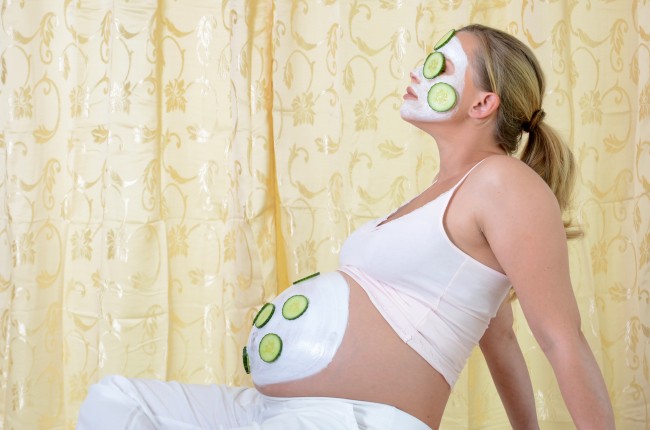Pregnancy is magical and complicated, as any new mom will tell you.
Because our bodies are in an altered state while cooking up another human life, we practise the precautionary principle – meaning that most elective treatments (covering almost all aesthetic procedures), even though they’re safe, are contra-indicated until your little bundle of joy arrives.
So the best you can do, while eating for two, is to remember some preventative basics:
- That rosy glow is partially due to an increase in sebaceous gland activity – so make sure to use a good cleanser, especially before bed.
- “Eating for two” doesn’t mean you need to double the food, but you should make sure you eat nutrient-dense, healthy food, and use appropriate supplements in consultation with your health practitioner.
- Moisturise – particularly those areas of skin which are subject to rapid growth and stretching, and preferably with a special purpose cream to help maintain elasticity.
- The sun is not your friend. Racing hormones mean that you’ll be far more susceptible to pigmentation change – use a good sun block daily.
Postpartum, many women will have residual issues which they may wish to treat.
Some studies indicate that the two main visible effects, after weight gain, are stretch marks (50% of women) and pigmentation change (up to 80%).
While many women embrace these changes as part of life’s natural progression, it is possible to eliminate or significantly reduce them for people whose confidence or self-image has been negatively affected.
Stretch marks
Stretch marks can initially be treated with a V-beam laser to remove redness, and then with carboxy-therapy and Fraxel laser to remove the pale scar tissue. A course of treatments is normally required over time (three to six months) for full effect.
Pigmentation
Pigmentation, particularly on the face can be significantly reduced by microdermabrasion, TCA peels and Fraxel or Quadralase laser skin resurfacing. First time mothers should be aware that pigmentation in a first pregnancy probably indicates that the same will happen in those that follow.
About the Author: Dr Loredana Nigro is a dermatologist at Laserderm Parkhurst. For more information, visit www.laserderm.co.za.
Latest posts by Contributor (see all)
- Video: Why tummy time is important for your baby’s development - July 3, 2014
- Using the pill could affect your fertility - July 3, 2014
- What to expect from IVF - July 3, 2014





 Saving...
Saving...